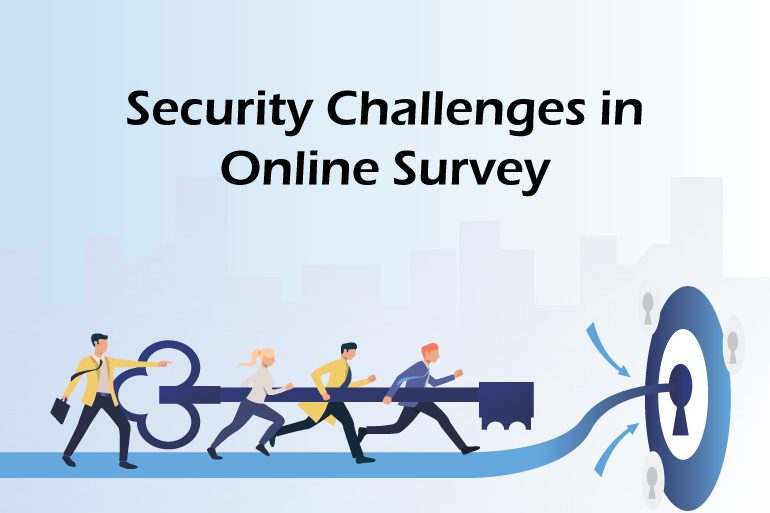Are you facing security challenges in Online Survey?

Are you facing security challenges in online surveys? To overcome this our experts are sharing their thoughts to make your survey more secure and effective.
Online surveys are a convenient and cost-effective way to collect data from a large and diverse group of people. However, with the ease of collecting data online, come certain security challenges that need to be addressed. In this blog post, we will discuss some of the common security challenges in online surveys and ways to address them.
- Unauthorized access: Unauthorized access to survey data is one of the biggest security challenges in online surveys. Hackers or unauthorized individuals may gain access to the survey data through various means, including phishing attacks or exploiting vulnerabilities in the survey software.To address this challenge, it is essential to use secure survey software that has strong access controls and authentication mechanisms. The survey software should require a username and password to access the survey data, and data should be encrypted during transmission and storage.
- Data confidentiality: Online surveys often involve collecting sensitive information from participants, such as their personal details, opinions, and behavior. The confidentiality of this information must be maintained to protect the privacy of the participants.To ensure data confidentiality, the survey software should use encryption to protect data transmission and storage. In addition, the survey should be hosted on a secure server that is protected by firewalls and other security measures. It is also essential to establish a privacy policy that outlines how the data collected will be used and who will have access to it.
- Data integrity: Data integrity refers to the accuracy and completeness of the data collected in the survey. Hackers or other unauthorized individuals may tamper with the survey data by altering responses or introducing false data.To address this challenge, the survey software should have measures in place to detect and prevent data tampering. For example, the software can use digital signatures or other methods to ensure that the data collected is authentic and has not been modified.
- User authentication: User authentication is essential to ensure that only authorized individuals have access to the survey data. The survey software should require a username and password to access the survey data.To address this challenge, it is essential to use strong passwords and implement two-factor authentication (2FA) to protect against password theft or phishing attacks.
- Denial-of-service attacks: Denial-of-service (DoS) attacks can disrupt the availability of the survey software, making it difficult or impossible for participants to complete the survey.To address this challenge, the survey software should have measures in place to detect and prevent DoS attacks. This may include implementing firewalls, intrusion detection systems, and other security measures to prevent unauthorized access to the survey software.
In conclusion, online surveys are an effective way to collect data from a large and diverse group of people. However, the security challenges discussed above must be addressed to ensure the confidentiality, integrity, and availability of the data collected. By implementing strong security measures and using secure survey software, organizations can protect their survey data and ensure the privacy of their participants.